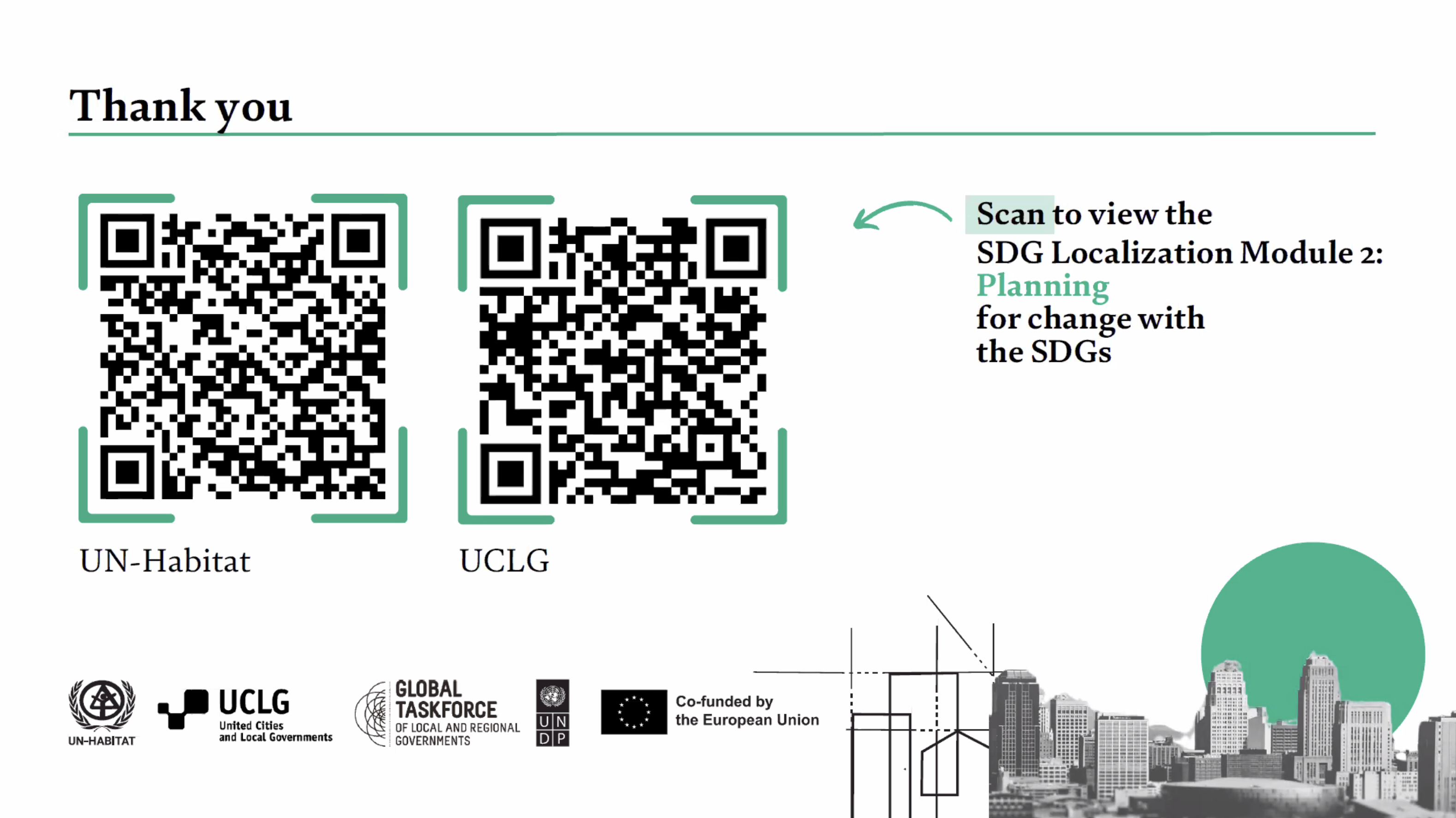UCLG and UN-Habitat launch the new SDG Localization Module 2 on “Planning for Change with the SDGs”
27.06.2024
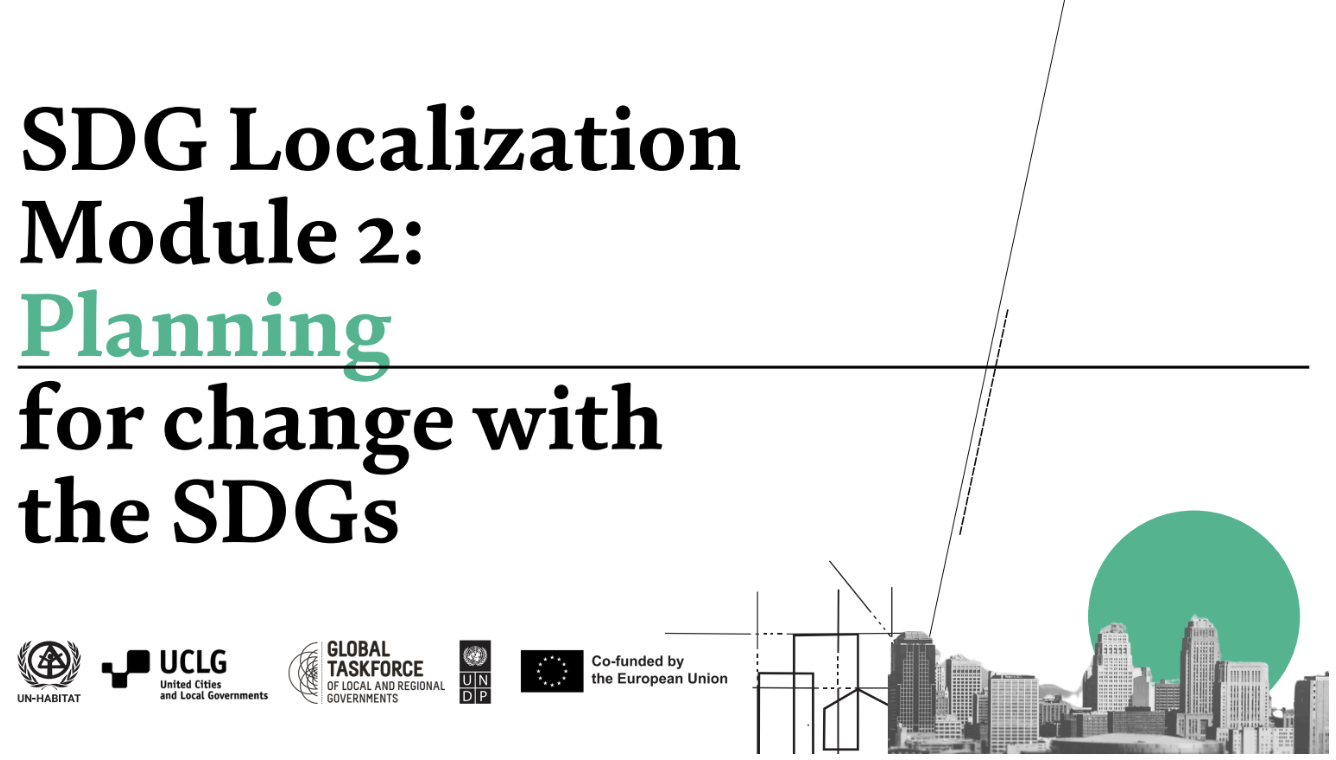
On June 5, 2024 UCLG and UN-Habitat launched the updated SDG Localization Module 2 called “Planning for Change with the SDGs”, aiming to provide local and regional governments (LRGs) with the tools and knowledge necessary to address the unique challenges they face in terms of urban and territorial planning and create a more sustainable and inclusive future for all.
The SDG modules are a cornerstone of localization and widely used by the organizations, trainers and practitioners in local and regional government. After a module of “introduction” to the SDG that looks at awareness, the second module looked at strategic planning, and was followed by module 3 on reporting and module 4 on cooperation.
However, the first version of module 2 emphasized on strategic government plans, and the reality shows that the SDGs are also deeply connected to what we call spatial urban planning. Key competencies like land management, regulation, basic service are deeply connected to the global agenda. Taking advantage of the practical findings of cities and also the knowledge gathered in the organizations, the decision was to update and incorporate this component.
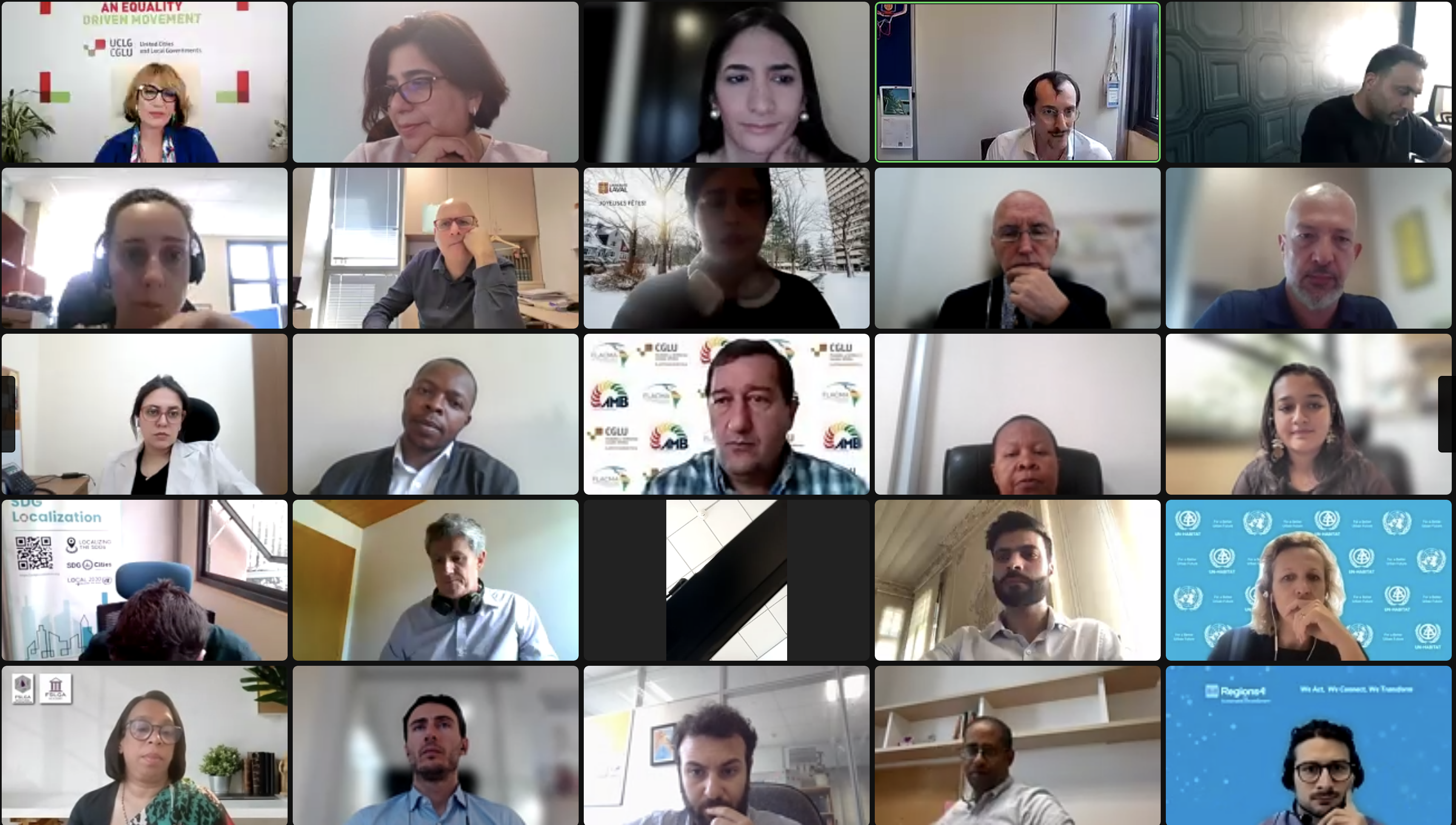
The online event was kicked off by Martino Miraglia, coordinator of the SDG Localization and Local Governments and SDG Cities Flagship Programme of UN-Habitat, who welcomed the more than 170 participants and stressed the importance of this learning module in building the capacities needed for effective local governance.
Following these introductory remarks, Emilia Saiz, Secretary General of UCLG, officially opened the session highlighting the significance of local actions in achieving global agendas. She pointed out how the SDGs are the “common language and the expression of what we are trying to achieve” underlining the importance of collaboration in addressing the challenges of climate change. She also commended the thousands of local government officials trained through these modules, recognizing the collective learning process as “a matter of pride”.
Shipra Narang Suri, Chief of the Urban Practices Branch at UN-Habitat, carried on with Emilia’s discussion on climate change and its ever-more evident impacts. She underscored the importance of integrating SDGs into territorial planning to ensure more efficient service delivery and address inequalities by “grasping the needs, priorities and gaps of every single community, neighborhood, city”. She also called for each and everyone of us to embrace this agenda and “drive it forward in whichever context are operating, local, subnational, national and global”.
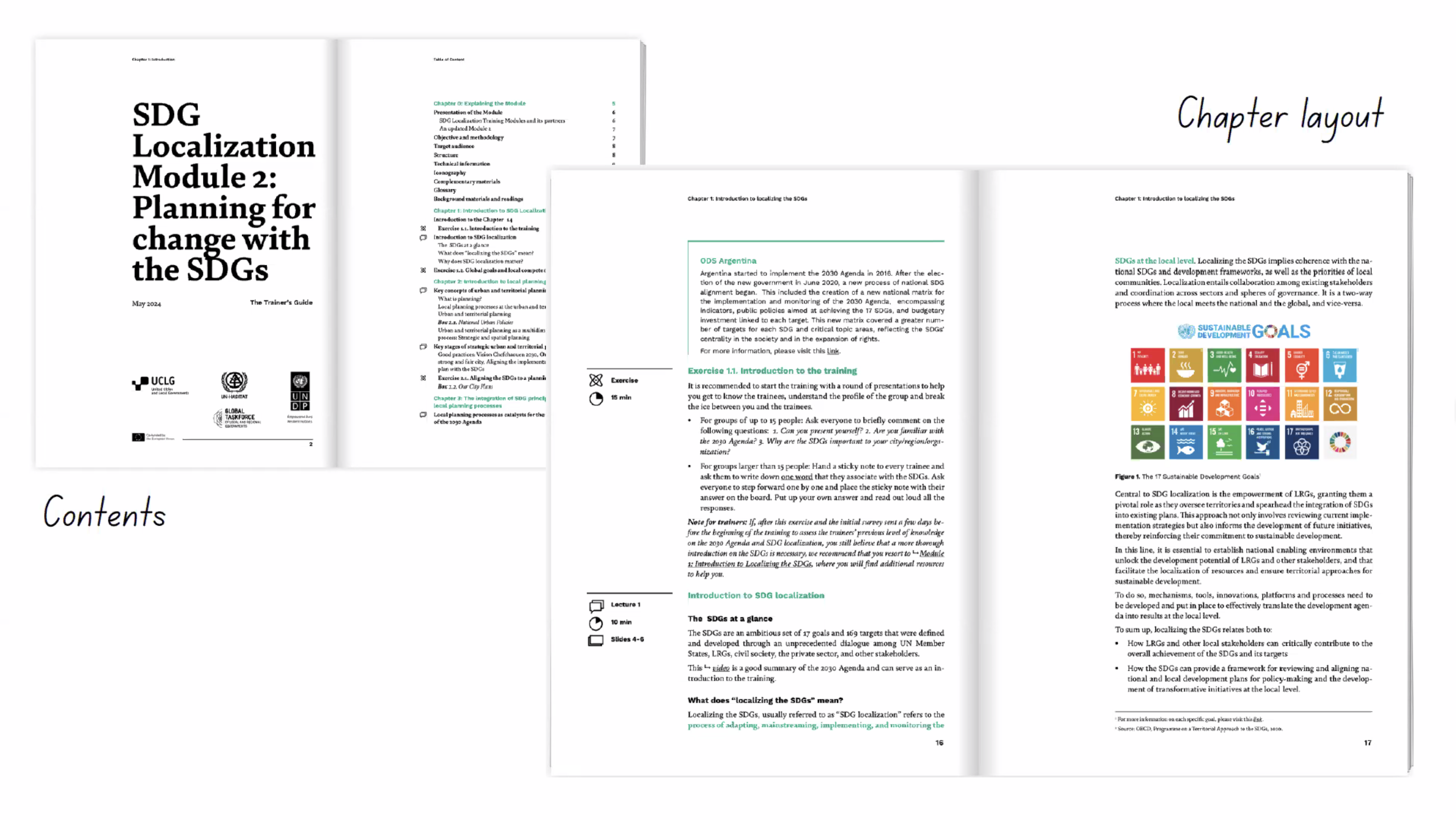
The event continued with Sara Hoeflich, Assistant General Secretary for Service Innovation at UCLG providing an overview of the module’s content. She underlined the inherent connections between urban governance and planning, which are often overlooked in practice. The module is dedicating attention to making strategies more measurable and at the same time unlocking the opportunities underlying in the competences on land use and service provision of local and regional governments. As the knowledge of the module is based on cases and lessons of cities, each chapter has practical examples and interactive offers for trainers and students to use their own experience. Following her presentation, the UCLG learning teamshowcased the two new games developed: one focused on defining appropriate indicators to evaluate local initiatives, and the other centered on using proximity as the core concept for neighborhood planning.
The panel discussion, featured insights from experts with different backgrounds that linked their work with the contents of the module. Representing the national level, Alexandre Amado, Officer of the Competence Centre for Planning, Policy and Foresight in Public Administration, Portugal, provided an overview of the PlanAPP project. Rima Odeh, Executive Director for Planning of the Greater Amman Municipality, presented the new urban planning bylaw in Amman and its alignment with the SDGs. She reminded participants that “planning, in particular laws concerning land, are true decisions that impact development over decades”. Finally, Diana Dajer, from the CSO Fundación Corona, highlighted the importance of institutionalizing citizen participation for the localization of the SDGs.
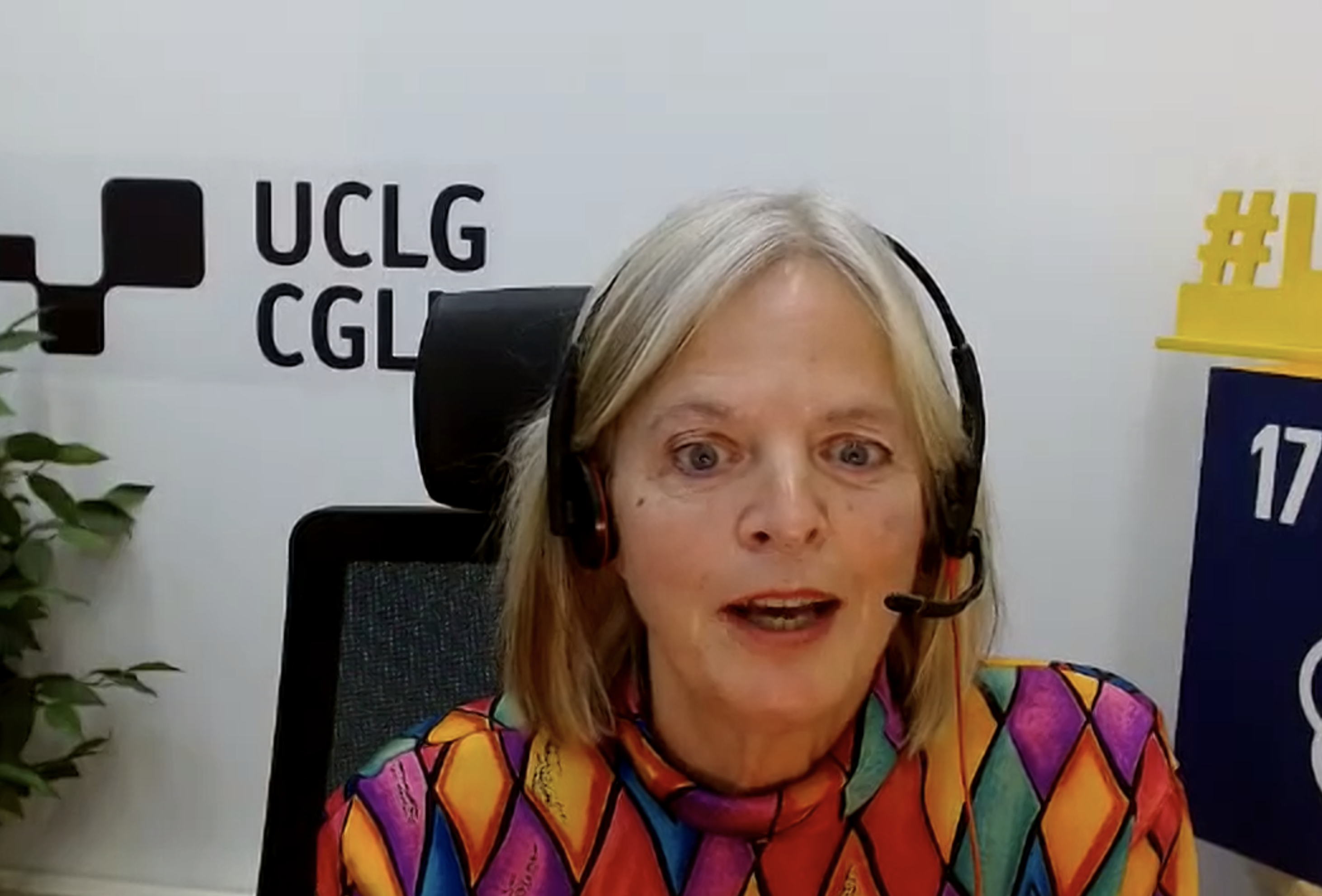
The open floor session allowed notable contributions from representatives from Islamabad, who shared their pilot program for building capacity on SDG 11 implementation, and from Amman, who addressed how the city was integrating the SDGs into their planning through the city’s climate action plan and transport planning alignment with the 2030 agenda. Mehmet Duman, Secretary General of UCLG-MEWA underscored the interactive nature of the module, enhancing its accessibility for LRG training.
Sara Hoeflich closed the event announcing the next steps for the module, which will be rolled out onsite in different regions and online as part of the SDG course with the objective of training future trainers. This launching event marks an important step in the journey towards empowering LRGs and driving sustainable development at the local level to create a better future for all.
You can watch the launch of Module 2 here
